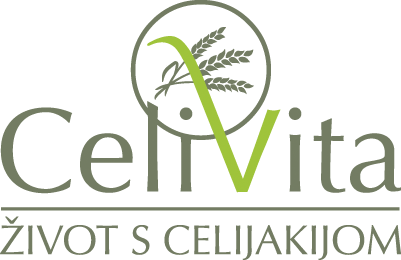
Project acronym: CD SKILLS
Project name: Improving celiac disease management in the Danube region by raising the awareness, improving the knowledge, and developing better skills
Name of the lead partner: University Medical Center Maribor
Project duration: 30 months
Start date: 1.7.2020
End date: 31.12.2022
eMS project number: 571
Programme priority specific objective: SO 1.2 Increase competences for business and social innovation
Partners:
Project partners
- University Medical Center Maribor
- Municipality of Maribor
- Medical University of Graz
- Children’s Hospital Zagreb
- General University Hospital in Prague
- Serbian Celiac Society
- National Institute for Mother and Child Health Alessandrescu-Rusescu
- CeliVita – Living with Celiac Disease
- Heim Pal National Paedaitric Institute
- University of Debrecen
- Medical University – Varna Prof. Dr. Paraskev Stoyanov
- »Nicolae Testemitanu« State University of Medicine and Pharmacy of the Republic of Moldova, Kishinau
Associated Strategic Partners
- Dr. Schär AG/SPA
- Romanian Association for Gluten Intolerance
- Croatian Institute of Public Health
- Bulgarian Celiac Association
- Bulgarian Society for Pediatric Gastroenterology, Hepatology and Nutrition
- Hungarian Pediatric Gastroenterology Society
- Health Service Youth and Family Office, City of Graz

Programme: Interreg Danube Transnational Programme
Project value: 1.640.110€ (ERDF 1.455.930€, IPA 88.000€, ENI 96.180€)
Partner budget: CeliVita budget: 62.310 Eur, ERDF contribution 52.963,5 Eur; CeliVita contribution 9.345,5Eur
Project description:
CD SKILLS project is addressing existing challenges of the healthcare sector in Celiac disease (CD) management in the Danube region.
Most important facts about coeliac disease are:
- CD is a lifelong systemic reaction against gluten found in wheat, barley and rye.
- It can occur at any age, but usually starts in early childhood.
- Women are affected twice as common as men. Without a very strict exclusion diet, severe complications can develop.
- More than 1% of the population (about 1.2 million) in the Danube region could have CD, with a much larger population affected indirectly.
- It has an impact on families and friends, as well as on childcare institutions, food producers, catering service and especially on the healthcare sector.
- About 80% of patients are diagnosed with long delay or remain undiagnosed, increasing a risk of complications, resulting in high morbidity and mortality, low school performance and high work absenteeism. This has an important negative impact on sustainability of the healthcare sector and society.
Possible reasons for delays in diagnosis or undiagnosed cases are:
- low awareness and knowledge about the disease
- limited access to diagnostic tools
- limited opportunities for innovative learning
- inefficient information exchange
CD SKILLS aims to overcome these shortcomings to ensure a sustainable public healthcare sector, which will efficiently meet health related and social needs of patients and general public affected by CD.
Assessment of regional gaps in CD management will be followed by introduction of innovative learning strategy combining traditional lectures and modern e-tools, development of efficient disease detection strategies, and by innovative pilot services.
Multisector transnational network will enable knowledge exchange. Project activities will raise the awareness, improve knowledge, skills and competences of all stakeholders involved in CD management, effectively improving the capacity of healthcare and social service in the Danube region. Project capitalizes on projects CE Focus IN CD and SI-HU LQ-CELIAC.
DTP programme website: http://www.interreg-danube.eu/
CD SKILLS project website: http://www.interreg-danube.eu/approved-projects/cd-skills
CD SKILLS project is co-funded by European Union (ERDF, IPA, ENI).



